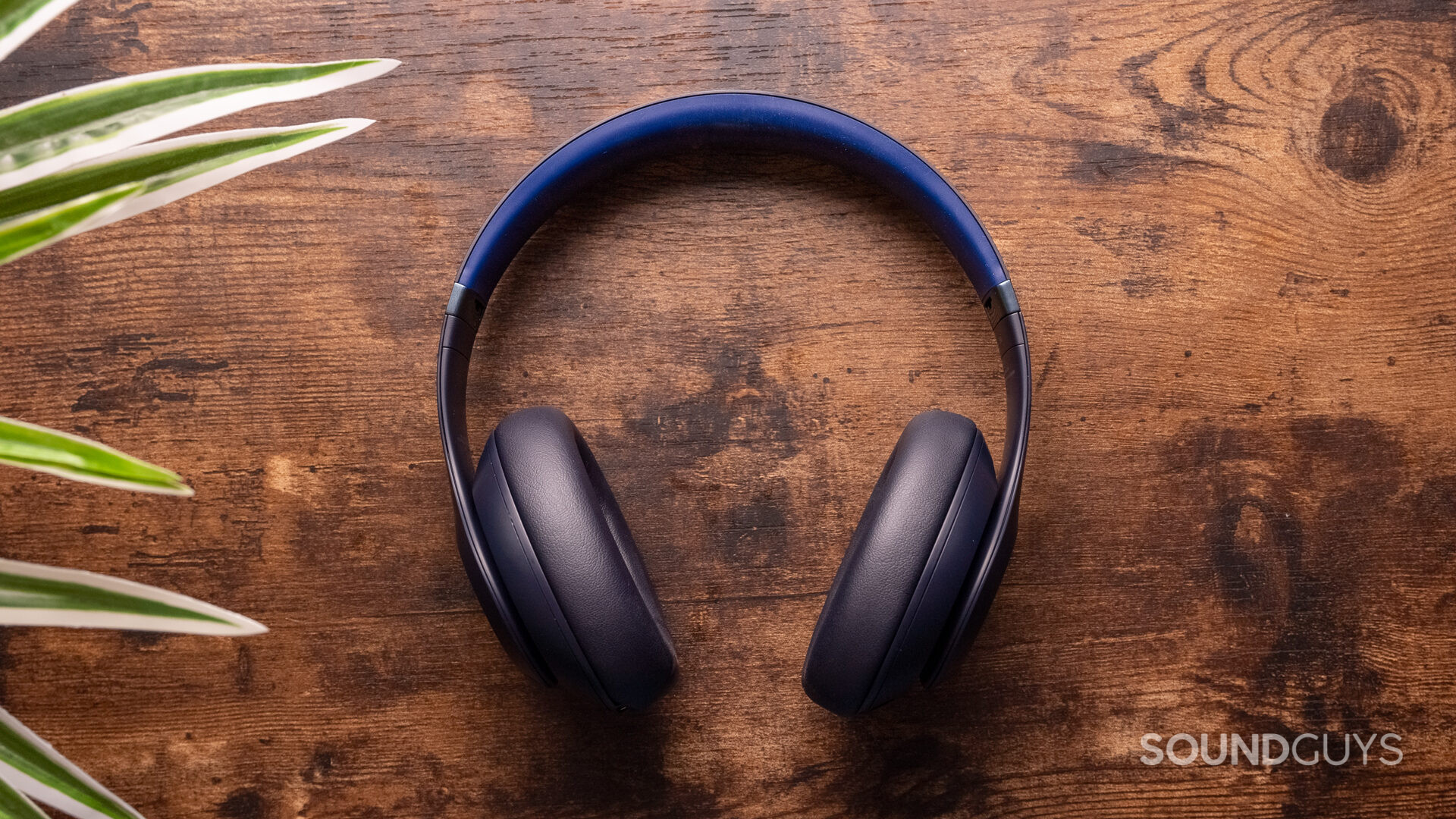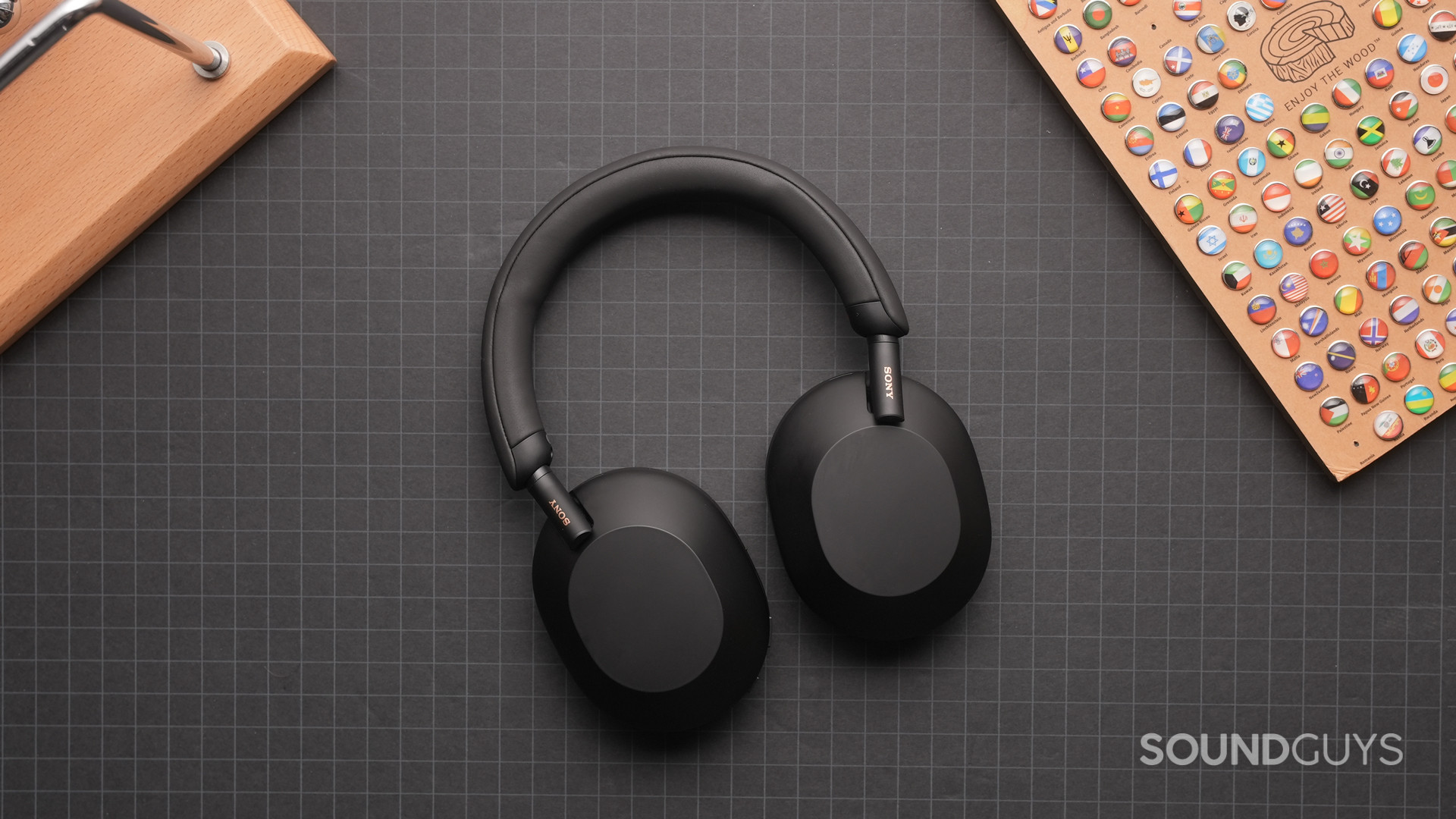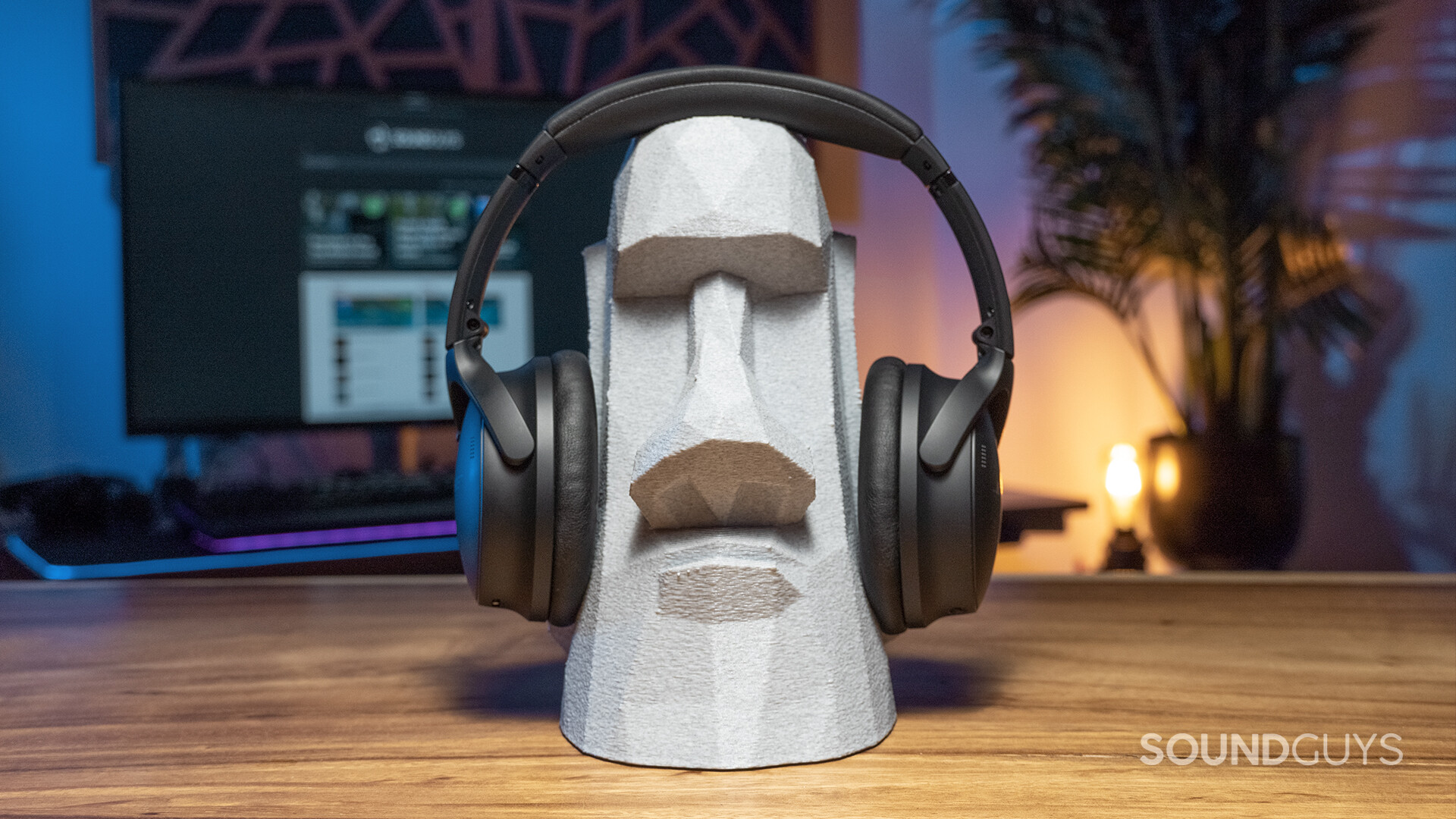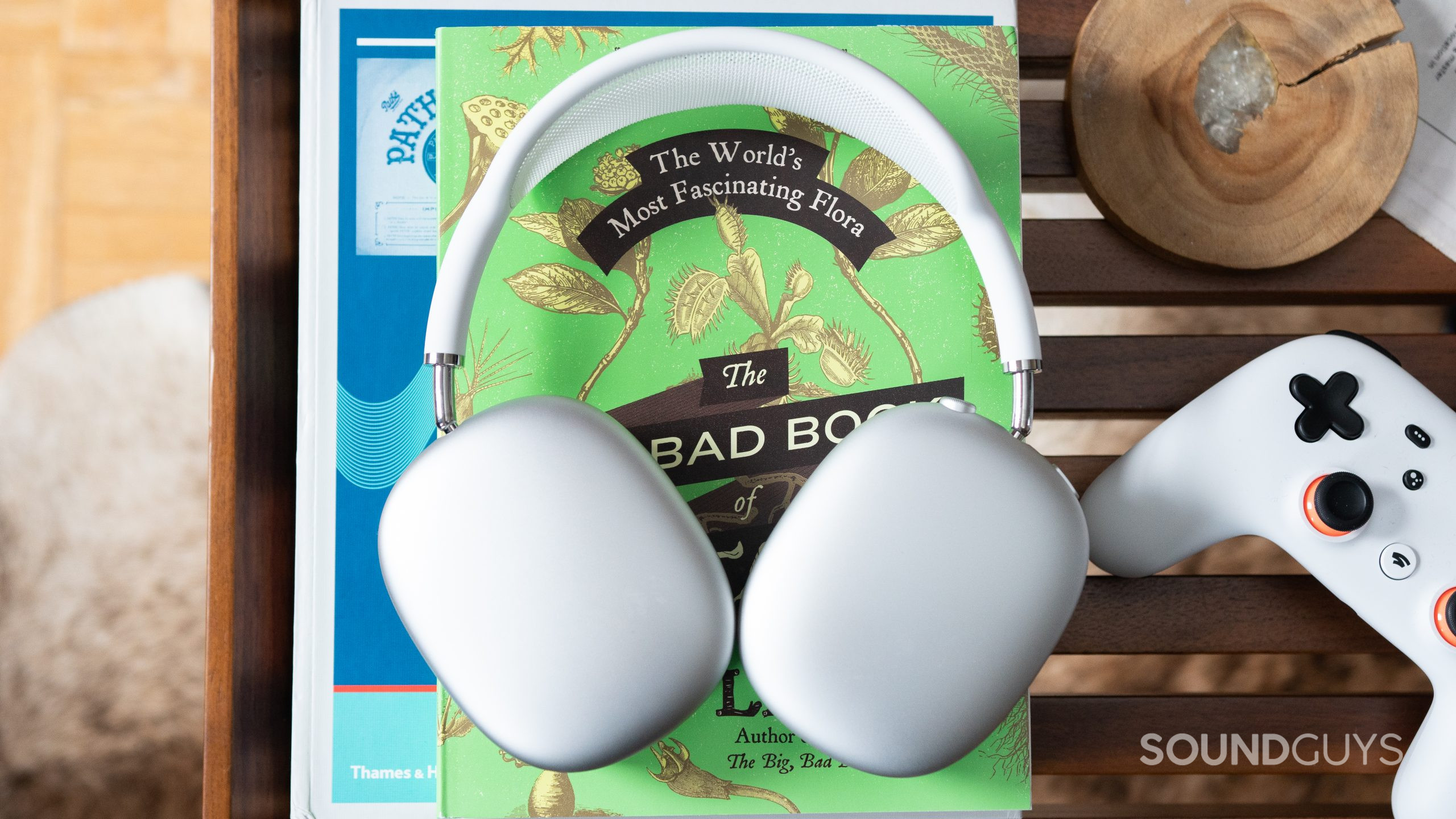All products featured are independently chosen by us. However, SoundGuys may receive a commission on orders placed through its retail links. See our ethics statement.
![Beats Studio3 Wireless[8] The Beats Studio3 headphones aren't the most comfortable to wear.](https://www.soundguys.com/wp-content/uploads/2018/02/Beats-Studio3-Wireless8.jpg)
Beats Studio3 Wireless review
Published onNovember 18, 2024
Beats Studio3 Wireless
The active noise canceling (ANC) headphone game has been run by Bose and Sony for a while now. But the Apple-owned Beats brand has a few pairs of active noise canceling cans, too. Can the Beats Studio3 Wireless stack up to its competitors?
Editor’s note: this article was updated on November 18, 2024, to include the most recent information about alternatives to the Beats Studio3 Wireless.
What’s it like to use the Beats Studio3 Wireless?
![Beats Studio3 Wireless[4] Even with a matte finish the Studio3 Wireless headphones don't pick up too many fingerprints.](https://www.soundguys.com/wp-content/uploads/2018/02/Beats-Studio3-Wireless4.jpg)
The Beats Studio3 Wireless are made of soft, matte plastic, which is smooth. They’re not as much of a fingerprint magnet as you might suspect, and the plush ear cups are nice. I can wear these for hours before my ears begin to hurt, though the leatherette gets hot after a few hours. The same can’t be said of the headband: it’s made of a hard, grippy plastic that tugs on my hair.
You can quickly compact the headphones for travel, and the headband is adjustable. The Studio3 Wireless feels stiff, and you can feel the headphones stain against minor torsion. Luckily, they come with a hardshell carrying case that I recommend using if you decide to pick them up.
![Beats Studio3 Wireless[7] The Class 1 Bluetooth shows in the Studio3 Wireless headphones with a strong connection.](https://www.soundguys.com/wp-content/uploads/2018/02/Beats-Studio3-Wireless7.jpg)
These have a few different buttons and despite the symmetrical look of the headphones, they’re all located on the left side (save for the power button). Clicking the “b” logo on the left ear cup once will pause or play music, twice will skip to the next song, and three times will return to a previous song. You can also press and hold the button to access your phone’s smart assistant. Above and below the “b” logo is where you’ll find the volume up and volume down controls.
How do you control the Beats Studio3 Wireless?
![Beats Studio3 Wireless[6] Curiously, there's no USB Type-C or even a lightning port on the Beats Studio3 Wireless.](https://www.soundguys.com/wp-content/uploads/2018/02/Beats-Studio3-Wireless6.jpg)
The left ear cup of the Beats Studio3 Wireless is where you’ll find its controls. In addition to a power button, the “b” logo functions as a three-point-button. A single, double, triple, and long press of the “b” button gives you access to a range of playback and call functions, while pressing its top (up) or bottom (down) controls the volume.
| Button | Single press | Double press | Triple press | Press and hold |
|---|---|---|---|---|
| Button Top area | Single press Volume up | Double press | Triple press | Press and hold |
| Button Left logo | Single press Play / pause | Double press Next track | Triple press Previous track | Press and hold Voice assistant |
| Button Bottom area | Single press Volume down | Double press | Triple press | Press and hold |
| Button System button | Single press Check battery level | Double press ANC/Transparency toggle | Triple press | Press and hold Power |
To turn the Beats Studio3 Wireless on or off, press and hold the power button on the left ear cup for one second.
How do you connect the Beats Studio3 Wireless?
The Beats Studio3 Wireless supports the SBC and AAC Bluetooth codecs and has Class 1 Bluetooth and Apple’s very own W1 chip. If you’re in the Apple ecosystem, you’ll automatically be able to use it with all of your iCloud devices. If you’re on Android, you’ll have to pair the good old-fashioned way by opening up your Bluetooth settings, but even that is pretty seamless. No matter your device, there’s no audio-visual lag on either iOS or Android.
![Beats Studio3 Wireless[5] The removable audio cable lets you skip wireless playback and plug in to an audio source.](https://www.soundguys.com/wp-content/uploads/2018/02/Beats-Studio3-Wireless5.jpg)
On the bottom of the left ear cup is the 3.5mm input, so you can plug in the included audio cable with a mic and remote. And, no, it doesn’t end in a lightning cable, nor does it come with a dongle. Moving over to the right ear cup, you get the power button and five small LED lights that let you know roughly how much battery is left. Double-tapping the power button also lets you toggle the active noise canceling on and off, so long as you’re on an iOS device.
To toggle noise canceling with an Android, you need to download the Beats app. Then, at the very bottom is a micro-USB port, which isn’t a USB-C because… reasons.
Yes, if your TV supports Bluetooth, you can connect the Beats Studio3 Wireless to it. Otherwise, you could use a Bluetooth transmitter with your TV.
We recommend the AirFly Pro. It plugs into a 3.5mm jack and creates a Bluetooth connection with your headphones. It can also function as a Bluetooth receiver in your car.
How’s the active noise canceling performance on the Beats Studio3 Wireless?
Loading chart ...
Now, the active noise canceling is kind of the point of getting these headphones. You can turn the ANC on or off in two ways: one is by clicking the power button twice, and the other is in the actual Bluetooth settings app on iOS. On Android, you can toggle ANC if you download the Beats app. The headphones, by default, always have the ANC on, and it adapts to the amount of sound going on around you.
The ANC unit is passable but not great. However, as the Beats Studio3 Wireless are pretty good at physically blocking noise from entering your ears, the cumulative effect is decent.
How long does the Beats Studio3 Wireless battery last?
Beats claim a battery life of 22 hours with active noise canceling turned on and 40 hours without. For reference, Bose claims about 20 hours of constant playback on their QC35 headphones. In our testing here, we got 10 hours and and 12 minutes on 100% volume with ANC turned on, so it isn’t hard to see how you could push these well beyond the 22 hours unless you want to blow out your eardrums.
Does the Beats Studio3 Wireless sound good?
![Beats Studio3 Wireless[10] There's only one button the right ear cup, and it controls the ANC and power.](https://www.soundguys.com/wp-content/uploads/2018/02/Beats-Studio3-Wireless10.jpg)
When it comes to headphones that I’m going to be using for hours at a time on plane rides and commutes, I want three things: comfort (which I already spoke about), battery life (which is pretty good), and sound quality. If I’m taking a 20-hour plane ride, chances are that I’m going to be staring wistfully out of the window at some point, reminiscing and listening to my favorite Bon Iver song, as we all do. At that point, sound quality becomes really important.
Loading chart ...
Now, these Beats headphones are notorious for favoring bass but it isn’t as loud as you might expect. The boosted bass notes are louder than our headphone preference curve (pink) suggests, though it remains listenable. Particularly bass-heavy tracks may suffer: the bass in the song “Never Look Back” by Slow Club masks the slow finger snaps at the intro. That really shouldn’t happen. The vocals that come in at about the same time, but at least the midrange boost makes them fairly easy to hear.
Around 0:08 seconds in, the main melody comes in, which is a female vocal layered on top of another vocal singing that same melody at a lower register. With these headphones, that secondary melody is more or less equal in output to the main melody, which, by definition of being a secondary melody, shouldn’t be the case.
How is the call quality on the Studio 3?
The Beats Studio3 Wireless contains an integrated microphone for voice calls, though you could also use the audio cable’s in-line microphone. We have yet to measure the in-line microphone’s frequency response. Meanwhile, the internal microphone demos highlight that voices sound slightly muffled, and background noise causes distortions, making this headset less than ideal for anything but a quiet environment.
Beats Studio3 Wireless microphone demo (Ideal conditions):
Beats Studio3 Wireless microphone demo (Wind conditions):
Beats Studio3 Wireless microphone demo (Street conditions):
Beats Studio3 Wireless microphone demo (Office conditions):
Beats Studio3 Wireless microphone demo (Reverberant space conditions):
How does the microphone sound to you?
Should you buy the Beats Studio3 Wireless?
![Beats Studio3 Wireless[8] The Beats Studio3 headphones aren't the most comfortable to wear.](https://www.soundguys.com/wp-content/uploads/2018/02/Beats-Studio3-Wireless8.jpg)
I have a hard time recommending this headset. The Studio3 Wireless feels like they were haphazardly thrown together to try and take a piece of the ANC market. They offer sound significantly worse than both the Bose QC35 II and the Sony WH-1000XM4 which released around the same time. The Studio3 Wireless also have a build that feels like it’ll crack if you bend it too much, and, though the ANC is decent, it isn’t better than its alternatives.

I’m usually a little more lenient with Beats products because I know they will sell anyway, but the Studio3 Wireless isn’t worth the original $350. On promotion, for less than $200 is a different story. These cans become a fairly priced option at that point, but the “studio” moniker doesn’t make this a real set of studio headphones.
What should you get instead of the Beats Studio3 Wireless?
There are quite a few alternatives to the Beats Studio3 Wireless on the market, some more expensive than others.
Beats Studio3 Wireless vs Beats Studio Pro

Though the form factor of both headphones is largely similar, the Beats Studio Pro ($349.99 at Amazon) has a ton more features and modern updates over the comparatively ancient Studio3 Wireless. We published a deeper dive on this comparison a ways back, but the top line here is: there’s no reason to get the Beats Studio3 Wireless over the Beats Studio Pro because the newer headset offers a ton of updates, and the price is too similar.
Beats Studio3 Wireless vs Sony WH-1000XM5

The Sony WH-1000XM5 has some of the very best ANC in the business. If you’re interested in spending$387 at Amazon on a pair of headphones, I definitely recommend it over the Beats Studio3. Sony’s active noise canceling performance is among the best available. It also offers Bluetooth 5.2 multipoint with AAC and LDAC driver support, and its sound signature is much more accurate than the Studio3. If you want to save a bit of cash, go for the older Sony WH-1000XM4 () or Sony WH-1000XM3 ($349.99 at Best Buy).
Beats Studio3 Wireless vs Bose QuietComfort 45

If you want something more comfortable and with the best active noise canceling for $279 at Amazon, look into the Bose QuietComfort 45. This headset is, as the name suggests, insanely comfortable and easy to travel with. You get SBC and AAC Bluetooth codec support along with a wired input for lossless playback. The Bose Music app works with iOS and Android, and, as of February 2022, it also comes with an equalizer.
Beats Studio3 Wireless vs Apple AirPods Max

The Apple AirPods Max is even more expensive () than the Beats or Sony flagships, but Apple’s debut ANC headphones come packed with advanced hardware and software. Each ear cup houses an H1 chip for maximum processing power, and the headset supports Spatial Audio, which is great for virtual media like movies and games. It isn’t perfect, though, and we highlight all its pros and cons in our Apple AirPods Max review.
Frequently asked questions
No, you cannot use the headset as a speaker. It only plays audio through the ear cup drivers into your ears, and isn’t meant to emit sound beyond the scope of your ears.
If you have an iPhone or iPad, make sure it’s running the most recent version of iOS or iPadOS. Connect your headset to the source device, and the firmware will update automatically. If you own an Android device, you must download the Beats app from the Google Play store and update the firmware from the app.
Yes, the Beats Studio3 Wireless headphones have an integrated microphone. You can also use the “b” logo on the left ear cup to answer or reject phone calls.
No, they do not.
Yes, at less than $200, the Beats Studio3 Wireless offers solid value. Originally priced at $350, they might have been a tougher sell, but the lower price makes them an appealing option for fans of the Beats brand and those seeking quality wireless headphones with active noise cancellation (ANC).
Yes, the Beats Studio3 Wireless features active noise cancelling (ANC). While not the best in class compared to leaders like Bose and Sony, it provides decent noise cancellation that, combined with good passive isolation, offers a satisfactory experience.
The Beats Studio3 Wireless was released in October 2017. As of the review update in March 2024, they are nearly seven years old, making them an older option in the rapidly evolving headphones market.
Yes, the Beats Studio3 Wireless headphones are known for emphasizing bass, appealing to listeners who favor bass-heavy music. However, while the bass is boosted, it remains within a listenable range, ensuring that the headphones can still deliver a quality audio experience across various music genres.